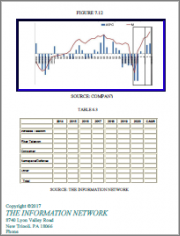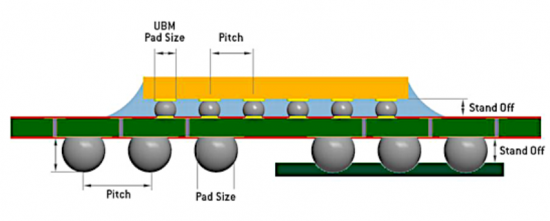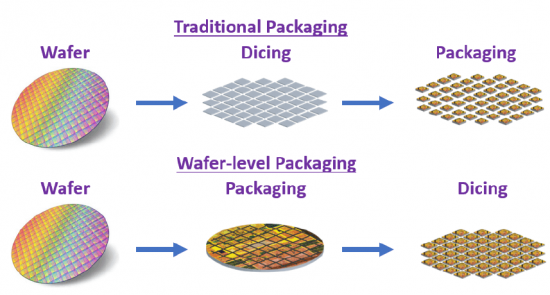
|
시장보고서
상품코드
1478710
플립칩/WLP 제조 및 시장 분석Flip Chip/WLP Manufacturing and Market Analysis |
||||||
반도체 산업은 전자 장치의 성능, 신뢰성 및 소형화를 향상시키는 패키징 기술의 발전에 힘입어 끊임없이 진화하고 있습니다. 이러한 패키징 기술은 소형화, 고기능화, 전기적 성능 향상이라는 독보적인 이점을 제공하며 현대 전자 시스템에 필수적인 요소로 자리 잡고 있습니다.
반도체 플립칩 및 WLP 시장은 가전, 자동차, 헬스케어, 통신 등 다양한 최종 사용 산업에서 소형화 및 고성능 전자기기에 대한 수요 증가에 힘입어 최근 몇 년 동안 큰 폭의 성장을 이루었습니다. 소형화, 고기능화, 고신뢰성에 대한 요구가 점점 더 높아지고 있는 가운데, 플립칩과 WLP 기술은 이러한 과제를 해결하는 데 필수적인 솔루션이 되고 있습니다.
빠르게 변화하는 반도체 제조의 세계에서 기술 혁신은 발전의 원동력이 되고 있습니다. 수많은 첨단 패키징 중에서도 플립칩과 웨이퍼 레벨 패키징(WLP)은 전자 장치의 판도를 바꾸는 중요한 기술로 부상하고 있습니다. 소형화, 고성능, 고기능화에 초점을 맞춘 이들 패키징 기술은 반도체 부품의 집적 방식을 혁신하여 소형 고성능 전자제품의 새로운 시대로 가는 길을 열어가고 있습니다.

본 보고서는 반도체 플립칩 및 WLP에 대한 종합적인 조사를 통해 주요 동향, 촉진요인, 시장 촉진요인 및 과제 등 시장 동향을 상세히 분석합니다. 또한, 기술 발전, 시장 역학, 경쟁 환경에 초점을 맞추어 이해관계자들이 새로운 시장 동향을 활용하여 의사결정을 내릴 수 있도록 귀중한 인사이트를 제공하는 것을 목표로 하고 있습니다.

목차
제1장 소개
제2장 주요 요약
제3장 플립칩/WLP 과제와 동향
- 소개
- 웨이퍼 범핑
- 웨이퍼 레벨 패키징
- 패드 재분배
- 웨이퍼 범핑 비용
- 패널 레벨 패키징
제4장 리소그래피 과제와 동향
- 문제
- 노출 시스템
- 경쟁 기술
제5장 UBM 에칭 과제와 동향
- 소개
- 기술 문제와 동향
- 배치 에칭과 싱글 웨이퍼 에칭
제6장 금속화 문제와 동향
- 소개
- 스퍼터링 금속화
- 전기도금
제7장 시장 분석
- 플립칩과 WLP 시장 성장 촉진요인
- 시장 기회
- 과제
- 플립칩 시장
- 리소그래피 시장
- 증착 시장
Introduction
The semiconductor industry is continually evolving, driven by advancements in packaging technologies that enhance performance, reliability, and miniaturization of electronic devices. Among these technologies, Flip Chip and Wafer-Level Packaging (WLP) have emerged as critical enablers of next-generation semiconductor devices. These packaging techniques offer unparalleled advantages in terms of size reduction, increased functionality, and improved electrical performance, making them indispensable in modern electronic systems.
The semiconductor Flip Chip and WLP market have witnessed significant growth in recent years, fueled by the growing demand for compact, high-performance electronic devices across various end-use industries such as consumer electronics, automotive, healthcare, and telecommunications. As manufacturers strive to meet the ever-increasing demands for smaller form factors, higher functionality, and greater reliability, Flip Chip and WLP technologies have become essential solutions for addressing these challenges.

This comprehensive report on semiconductor Flip Chip and WLP provides a detailed analysis of the market landscape, including key trends, drivers, challenges, and opportunities shaping the industry's trajectory. With a focus on technological advancements, market dynamics, and competitive landscape, this report aims to provide stakeholders with valuable insights to make informed decisions and capitalize on emerging market trends.
Key components of the report include:
Market Overview: An in-depth overview of the semiconductor Flip Chip and WLP market, including market size, growth drivers, and industry challenges. The report examines the current market landscape and provides forecasts for market growth and adoption trends over the forecast period.
Technology Landscape: A comprehensive analysis of Flip Chip and WLP technologies, including their principles, manufacturing processes, and key advancements. The report explores emerging trends such as fan-out wafer-level packaging (FOWLP), through-silicon vias (TSVs), and heterogeneous integration, highlighting their impact on the semiconductor packaging ecosystem.
Application Insights: An examination of key application areas driving the adoption of Flip Chip and WLP technologies across various industries, including consumer electronics, automotive electronics, healthcare devices, and telecommunications infrastructure. The report identifies growth opportunities and market trends in each application segment.
Competitive Analysis: A detailed assessment of the competitive landscape, including the profiles of leading players, their product portfolios, key strategies, and recent developments. The report provides insights into market positioning, competitive strengths, and potential growth strategies adopted by key players in the semiconductor Flip Chip and WLP market. Market Outlook and Opportunities: A forward-looking analysis of market trends, emerging opportunities, and future growth prospects in the semiconductor Flip Chip and WLP market. The report offers strategic recommendations for stakeholders to capitalize on market opportunities and mitigate potential risks.
Trends in Semiconductor Flip Chip/WLP (Wafer Level Packaging)
In the fast-paced world of semiconductor manufacturing, innovation drives progress. Among the myriad of advancements, Flip Chip and Wafer-Level Packaging (WLP) have emerged as pivotal technologies revolutionizing the landscape of electronic devices. With a focus on size reduction, enhanced performance, and increased functionality, these packaging techniques are reshaping the way semiconductor components are integrated, paving the way for a new era of compact, high-performance electronics. In this article, we delve into the latest trends shaping the semiconductor Flip Chip/WLP market, exploring the key drivers, innovations, and opportunities propelling this dynamic industry forward.
Market Growth and Expansion:
The semiconductor Flip Chip/WLP market is experiencing robust growth, driven by the escalating demand for smaller, more powerful electronic devices across a multitude of industries. With advancements in manufacturing processes and material technologies, Flip Chip and WLP solutions are increasingly being adopted in applications ranging from smartphones and wearables to automotive electronics and IoT devices. The market is poised for further expansion as manufacturers seek innovative packaging solutions to meet the evolving needs of modern electronic systems.
Technological Advancements:
Technological innovation lies at the heart of Flip Chip and WLP advancements. One of the key trends shaping the market is the adoption of fan-out wafer-level packaging (FOWLP), which offers significant advantages in terms of cost efficiency, miniaturization, and improved electrical performance. Additionally, through-silicon vias (TSVs) have emerged as a critical enabler of 3D integration, allowing for greater integration density and enhanced performance in semiconductor devices. Other notable trends include the development of heterogeneous integration techniques and the integration of advanced materials such as silicon photonics and gallium nitride (GaN) into packaging processes.

Application Diversification:
Flip Chip and WLP technologies are finding applications across a diverse range of industries, driving demand for specialized packaging solutions tailored to specific end-use requirements. In the consumer electronics sector, Flip Chip/WLP solutions are facilitating the development of smaller, more energy-efficient devices with enhanced functionality. In the automotive industry, these technologies are enabling the integration of advanced driver-assistance systems (ADAS), infotainment systems, and vehicle-to-everything (V2X) communication modules. Moreover, in the healthcare and telecommunications sectors, Flip Chip/WLP solutions are playing a crucial role in the development of next-generation medical devices, network infrastructure, and 5Genabled devices.
Market Dynamics and Competitive Landscape:
The semiconductor Flip Chip/WLP market is characterized by intense competition and rapid technological advancements. Leading players in the industry are investing heavily in research and development to stay ahead of the curve and gain a competitive edge. Moreover, strategic partnerships, mergers, and acquisitions are shaping the competitive landscape, driving consolidation and fostering innovation. As the market continues to evolve, collaboration between semiconductor manufacturers, packaging companies, and equipment suppliers will be crucial to unlocking new opportunities and driving growth.
Future Outlook and Opportunities:
Looking ahead, the future of the semiconductor Flip Chip/WLP market looks promising, with ample opportunities for innovation and growth. Continued advancements in packaging technologies, coupled with the proliferation of emerging applications such as artificial intelligence (AI), Internet of Things (IoT), and automotive electronics, are expected to drive demand for Flip Chip and WLP solutions. Moreover, as semiconductor devices become increasingly complex and heterogeneous, the need for advanced packaging solutions will only continue to grow, presenting new opportunities for market players to capitalize on.
Table of Contents
Chapter 1. Introduction
Chapter 2. Executive Summary
Chapter 3. Flip Chip/WLP Issues and Trends
- 3.1. Introduction
- 3.2. Wafer Bumping
- 3.2.1. Solder Bumps
- 3.2.1.1. Metallurgy
- 3.2.1.2. Deposition Of UBM
- 3.2.1.3. Sputter Etching
- 3.2.1.4. Photolithography
- 3.2.1.5. Solder Deposition
- 3.2.1.6. Resist Strip
- 3.2.1.7. UBM Wet Etch
- 3.2.1.8. Reflow
- 3.2.1.9. Flux Issues
- 3.2.2. Gold Bumps
- 3.2.2.1. Bump Processing
- 3.2.2.2. Bonding
- 3.2.2.3. Coplanarity
- 3.2.2.4. Conductivity
- 3.2.2.5. Thermal Properties
- 3.2.2.6. Size
- 3.2.2.7. Reliability
- 3.2.2.8. Cost Issues
- 3.2.3. Copper Pillar Bumps
- 3.2.4. Copper Stud Bumping
- 3.2.5. C4NP
- 3.2.1. Solder Bumps
- 3.3. Wafer Level Packaging
- 3.4. Pad Redistribution
- 3.5. Wafer Bumping Costs
- 3.5.1. Wafer Redistribution And Wafer Bumping Costs
- 3.5.2. WLCSP Hidden Costs
- 3.5.3. WLCSP Cost Per Good Die
- 3.5.4. Wafer-Level Underfill Costs
- 3.6. Panel Level Packaging
Chapter 4. Lithography Issues And Trends
- 4.1. Issues
- 4.1.1. Technical Performance
- 4.1.2. Capital Investment
- 4.1.3. Cost Of Consumables
- 4.1.4. Throughput
- 4.1.5. Ease Of Use
- 4.1.6. Flexibility
- 4.1.7. Equipment Support
- 4.1.8. Resolution
- 4.1.9. Solder Bumping Capabilities
- 4.1.10. Gold Bumping Capabilities
- 4.2. Exposure Systems
- 4.2.1. Introduction
- 4.2.1.1. Reduction Steppers 4.
- 4.2.1.2. Full-Field Projection
- 4.2.1.3. Mask Aligners
- 4.2.1.4. 1X Steppers
- 4.2.1.5. 2X Steppers
- 4.2.1. Introduction
- 4.3. Competitive Technologies
- 4.3.1. Inkjet Printing
- 4.3.2. Stencil/Screen Printing
- 4.3.3. Electroless Metal Deposition
Chapter 5. UBM Etch Issues And Trends
- 5.1. Introduction
- 5.2. Technology Issues And Trends
- 5.2.1. Process Flow
- 5.2.2. Etch Process
- 5.2.3. Etch Chemistry
- 5.3. Batch Versus Single-Wafer Etching
Chapter 6. Metallization Issues and Trends
- 6.1. Introduction
- 6.2. Sputtering Metallization
- 6.2.1. Gold Bump
- 6.2.2. Solder Bumping
- 6.2.2.1. T I / Cu and TiW / Cu
- 6.2.2.2. Al / NiV / Cu
- 6.2.2.3. T i / N i (V) and TiW / Ni ( V )
- 6.2.2.4. Cr / Cr-Cu / Cu
- 6.2.3. Copper Bumping
- 6.3. Electrodeposition
Chapter 7. Market Analysis
- 7.1. Market Drivers For Flip Chip And WLP
- 7.2. Market Opportunities
- 7.3. Challenges
- 7.4. Flip Chip Market
- 7.4.1. Market Dynamics
- 7.4.2. Market Forecast
- 7.5. Lithography Market
- 7.5.1. Aligners Vs. Steppers
- 7.5.2. Market Analysis
- 7.6. Deposition Market


















